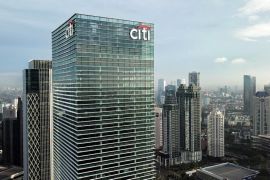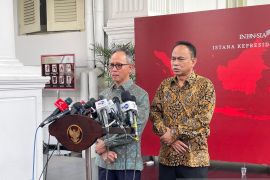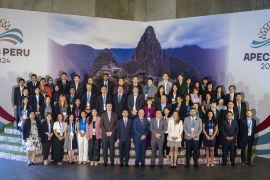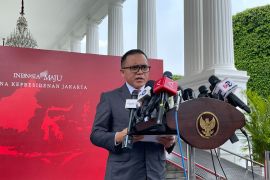Tokyo and Singapore, Nov 13, 2014 - (ANTARA) - Tokyo has taken the top spot in JLL's '2014 Global Commercial Attraction Index' which measures a city's economic and real estate power and status based on a basket of variables. The Index features in JLL's new report 'Tokyo on the World Stage' and is distinct in that it includes key real estate measures (investment volumes and commercial real estate stock), as well as socio-economic and business indicators such as economic output, population, corporate presence and air connectivity.
Tokyo's global competitive position is fundamentally tied to its unique economic scale as the world's most populous city, with the largest economy and consumer market. Greater Tokyo's economy exceeds US$1.4 trillion (as large as the economy of Spain) and, with nearly 38 million consumers, its domestic market far exceeds even that of New York, London and Paris. The city also has the world's largest stock of commercial offices and is home to more Forbes Global 2000 headquarters than any other city globally.
Flows of capital into real estate are a key barometer of a city's health, and with more than US$50 billion of commercial property transacted in the metropolis over the past three years, Tokyo is a clear 'Super City', as defined by JLL (see notes to editors). The untapped potential of Tokyo's real estate is well recognised by investors across the globe, many of whom are actively targeting the city, attracted by its newfound energy and momentum. JLL expect Tokyo to top the global league table for prime office rental growth in 2015.
Rosemary Feenan, director, global research at JLL and author of the report, commented: "City competitiveness revolves around attributes such as liveability, transparency, resilience and 'global fluency', which Brookings defines as the level of global understanding, competence, practice and reach that a (metro) city area exhibits to facilitate progress toward its desired economic future. Add to this unprecedented social change and the demand for 'smart cities', and it is clear that the urban agenda has radically changed."
She continued: "Against this backdrop, the evolution of Tokyo and its real estate market over the next decade holds an intriguing mixture of vast promise and perplexing challenge. Not only are the Olympics set to give a huge boost to the city and its international reputation, but to meet its own aspirations of improving its world position, Tokyo may have to absorb a number of significant changes to its fabric and lifestyle, and even to its personality."
The challenges being tackled
While Tokyo clearly excels in dimensions of scale and power, its position in several other areas is more ambiguous. However, the city is already addressing some of these challenges.
- Brand, image and influence: Tokyo has discovered a new confidence as a result of securing the XXXII Olympic Games. This global influence will be further strengthened by the 'Tokyo Vision 2020' projects.
- Infrastructure: Infrastructure development in the build-up to the Olympics will provide legacy both through the provision of Olympic facilities and through the strengthening of Tokyo's transportation infrastructure.
- Openness: The Tokyo Metropolitan Government aims to remove both hard and soft barriers to make Tokyo a 'barrier-free' city. This covers a broad range of areas from the removal of language barriers, increasing ease of doing business, through to the strengthening of the city's information and communications infrastructure.
- Tourism: Tokyo is witnessing a sharp increase in tourism, with foreign visitor numbers at record levels. The government aims to double foreign visitors by 2020, with initiatives to create 'Integrated Resorts' and to legalise casinos.
- Retail renaissance: Tokyo is a globally-renowned shopping city, with one of the largest concentrations of retail in the world. An improving economic environment, rising retail sales and increasing tourism have revived retailer interest in the city, with a number of retailers opening flagship stores.
The role of real estate?
The future success of Tokyo relies on the city refreshing its global reputation and addressing the constraints on international business activity; the real estate industry has an essential role to play in this process:
- Improving real estate transparency, an essential ingredient of a globally oriented city, will support business efficiency and help attract global corporations;
- Increasing the focus on 'green buildings' not only makes sense environmentally, but will increasingly be a key selling point for investors and corporate occupiers;
- Contributing to Tokyo's international profile and brand through state-of-the-art urban design and business practices.
Notes to Editors:
1. 'Tokyo on the World Stage' is available to download
2. Rosemary Feenan and Jeremy Kelly, authors of the report are available for interview
3. A JLL Super City is defined as having:
- A very large economy (measured by the GDP of the metro region)
- A deep corporate base (measured by No of Forbes 2000 HQs)
- High levels of global connectivity (measured by air passenger movement)
- High levels of commercial real estate investment activity (typically over US$50 billion over a 3-year period)
- And a large and diverse commercial real estate stock (typically at least 30 million sqm offices)
Contact:
Madeleine Little
Phone: +65 6494 7003
Email: madeleine.little@ap.jll.com
About Jones Lang LaSalle
JLL (NYSE: JLL) is a professional services and investment management firm offering specialized real estate services to clients seeking increased value by owning, occupying and investing in real estate. With annual fee revenue of $4.0 billion and gross revenue of $4.5 billion, JLL has more than 200 corporate offices, operates in 75 countries and has a global workforce of approximately 53,000. On behalf of its clients, the firm provides management and real estate outsourcing services for a property portfolio of 3.0 billion square feet, or 280.0 million square meters, and completed $99.0 billion in sales, acquisitions and finance transactions in 2013. Its investment management business, LaSalle Investment Management, has $53.0 billion of real estate assets under management. JLL is the brand name, and a registered trademark, of Jones Lang LaSalle Incorporated.
JLL has over 50 years of experience in Asia Pacific, with over 28,000 employees operating in 80 offices in 16 countries across the region. The firm was named 'Best Property Consultancy' in seven Asia Pacific countries at the International Property Awards Asia Pacific 2014, and won nine Asia Pacific awards in the Euromoney Real Estate Awards 2013. For more information, please visit www.ap.joneslanglasalle.com.
Reporter: PR Wire
Editor: PR Wire
Copyright © ANTARA 2014











